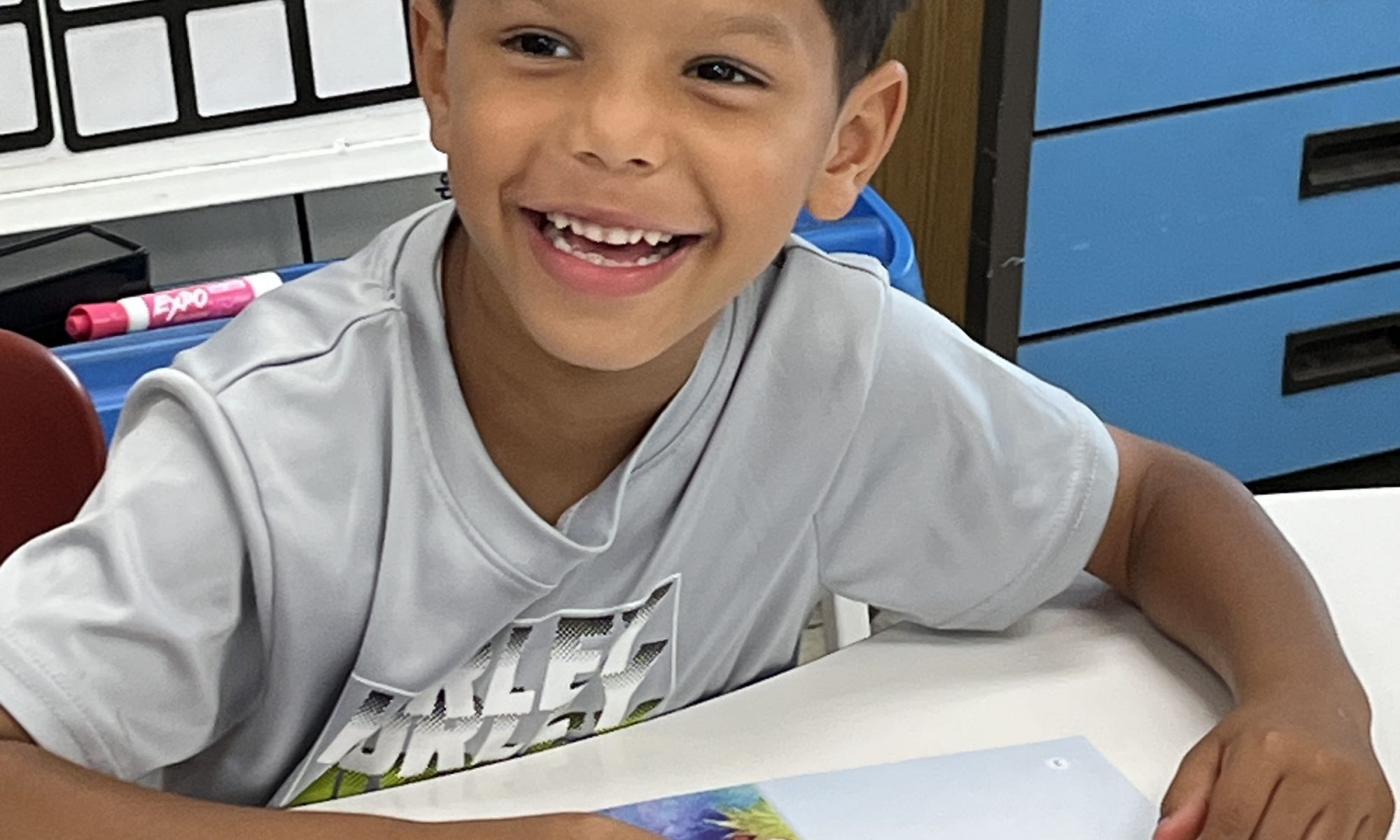While it may be summer recess, the halls of Golden Hill Elementary and S.S. Seward Institute are buzzing with activity.
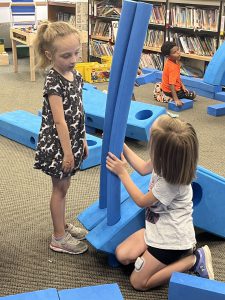 .Just two weeks after the 2022-23 school year ended, some Florida Union Free School District students were back at school taking part in a variety of summer programs offered by the district.
.Just two weeks after the 2022-23 school year ended, some Florida Union Free School District students were back at school taking part in a variety of summer programs offered by the district.
“Summer programming is crucial for both remedial and enrichment opportunities as it ensures that every student receives the support they need to catch up on academic gaps while also providing an avenue for fostering growth, exploration and intellectual stimulation,” Superintendent Dr. Lisamarie Spindler said.
Summer Programming
Summer school for students entering seventh through ninth grades at Florida began July 10 and will run through Aug. 10. The program’s goal is to bring students’ knowledge and skills to a level equal to the grade they will be entering this fall.
Classes run from 8:30 to 11:30 a.m. Monday through Thursday at S.S. Seward Institute. Students receive assistance in all core content areas—math, English, science, and social studies—not only those they may have been falling behind in. Students who failed one subject are recommended to attend, but it is not required. Students who failed two or more subjects in sixth through eighth grade are required to attend summer school.
“So many subjects are intertwined,” said summer school Principal Starla Ciarelli. “Our students are able to experience all subjects by completing engaging interdisciplinary projects.”
Summer Enrichment Experience
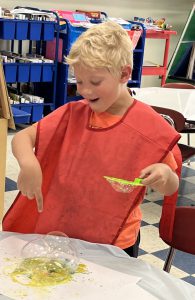 Students in elementary school also have the opportunity to expand their knowledge with the Summer Enrichment Experience at Golden Hill Elementary.
Students in elementary school also have the opportunity to expand their knowledge with the Summer Enrichment Experience at Golden Hill Elementary.
About 50 students in first through fifth grade signed up to attend the program—now in its second year—that focuses on the core curriculum but on a more fun, project-based learning approach.
The program began July 11 and runs through Aug. 3 from 8:30 a.m. to 12:30 p.m. Tuesdays through Thursdays.
“Our teachers use interactive teaching methods, which include hands-on experiments, small group work, and outdoor activities so students have fun and review academic skills,” Golden Hill Elementary Principal Deborah Lisack said. “Their curriculum aligns with grade-level standards and supports individual learning needs.”
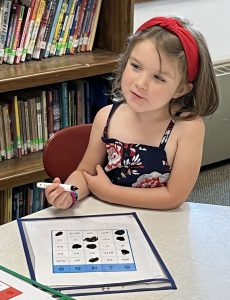 The youngest students started the session “learning at the beach,” bringing beach towels and chairs to the classroom while they worked on their writing and reading skills.
The youngest students started the session “learning at the beach,” bringing beach towels and chairs to the classroom while they worked on their writing and reading skills.
Second and third grade students explored fairy tales, learning how to understand that all stories can be re-told with a different voice and perspective. Students created or modified characters to fit their new narrative and presented their finished product via a performance for their peers using handcrafted popsicle stick characters. Additional science and math components are also offered.
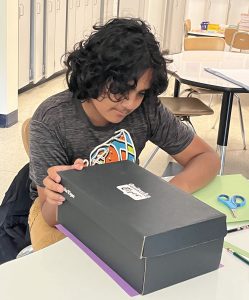 The oldest students are immersed in the Harry Potter world. They are reading the novels and focusing on reading, writing, math and science in fun, Harry Potter-themed activities, such as illustrating house crests, using text-based evidence to discuss and write comprehension questions, budgeting for Hogwarts school supplies, and participating in a potion-making class by making elephant toothpaste and glitter slime.
The oldest students are immersed in the Harry Potter world. They are reading the novels and focusing on reading, writing, math and science in fun, Harry Potter-themed activities, such as illustrating house crests, using text-based evidence to discuss and write comprehension questions, budgeting for Hogwarts school supplies, and participating in a potion-making class by making elephant toothpaste and glitter slime.
“What a great experience for students,” Lisack added.
Summer Band Program
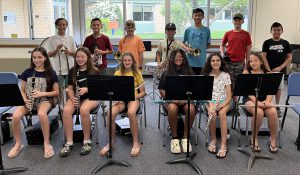 Also in its second year is the Summer Band program taking place at Golden Elementary and SS Seward.
Also in its second year is the Summer Band program taking place at Golden Elementary and SS Seward.
The program was started by Band Director Will Couture last summer and at that time was only for middle schoolers.
“After a successful session last summer I was given permission to expand the program to include a high school session,” Couture said.
There are 15 students participating from the middle school level and nine at the high school level. All students who take part in band in middle or high school are invited to participate.
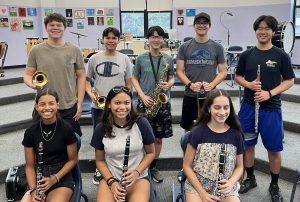 During the first 11 sessions of the program, students hone their instrumental skills preparing for a performance on the final day, which is Aug. 3.
During the first 11 sessions of the program, students hone their instrumental skills preparing for a performance on the final day, which is Aug. 3.
Some funding for the FUFSD summer programs is provided through state and federal money specifically earmarked to combat COVID-19 learning loss, and some is provided directly from the district.



